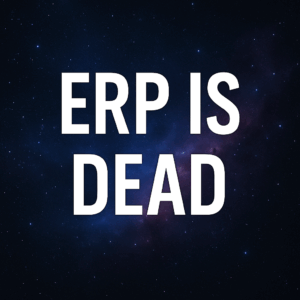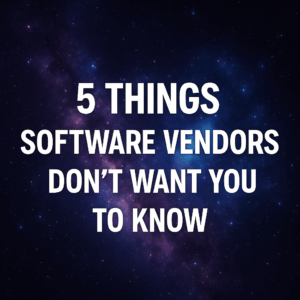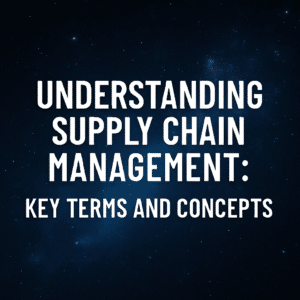Table of Contents
ToggleIntroduction
As the deadline for transitioning from legacy SAP systems approaches, organizations face mounting pressure to adopt S/4HANA. The official cutoff date for support of ECC and R/3 systems is set for 2027, creating urgency for businesses still relying on these platforms. However, there are crucial aspects surrounding this deadline that SAP may not emphasize. This article explores the implications of the 2027 deadline, options available to organizations, and strategic considerations for a successful transition.
Understanding the 2027 Deadline
SAP has announced that support for its older systems, ECC and R/3, will cease in 2027. This announcement has led many organizations to feel compelled to migrate to S/4HANA, often without fully understanding the implications of such a transition.
- Support Cutoff: By 2027, organizations using ECC and R/3 will no longer receive official support from SAP, compelling users to transition to S/4HANA. Some older versions may face an even earlier cutoff in 2025, heightening the urgency for those still operating on legacy systems.
- Research and Development Focus: SAP has shifted its focus and resources toward S/4HANA, particularly in the realms of artificial intelligence and other emerging technologies. As a result, new features and innovations will only be available within S/4HANA, creating a potential competitive disadvantage for organizations that delay migration.
The Pressure to Migrate
Many organizations feel a sense of urgency to comply with SAP’s timeline, often driven by fear of falling behind competitors or losing access to essential updates and support. However, this pressure can lead to hasty decisions that may not align with the organization’s strategic objectives.
- Large, Complex Organizations: Many SAP users are large enterprises with complex, customized systems that require careful consideration before transitioning. Rushing this process can lead to significant operational risks and inefficiencies.
- Uncertainty About Compliance: While SAP insists on adherence to the 2027 deadline, it remains to be seen whether the company will strictly enforce this cutoff. Large organizations may find it challenging to pivot quickly, and there is potential for SAP to reconsider the timeline based on customer feedback and operational realities.
What Organizations Can Do
- Consider Third-Party Maintenance and Support: If moving to S/4HANA by 2027 seems unrealistic, organizations can explore third-party maintenance providers. These providers can offer support for legacy systems at potentially lower costs, allowing companies to maintain their existing setups while they develop a more strategic migration plan.
- Assess Your Current System’s Viability: Evaluate whether your organization can continue using the current system beyond the 2027 deadline without support. This assessment involves examining internal capabilities, potential risks, and the impact on operations.
- Strategic Rethink on SAP Dependency: Organizations should critically evaluate their reliance on SAP solutions. With various SAP offerings like Ariba for procurement and SuccessFactors for HR management, companies can explore a best-of-breed approach that mitigates risk from being tied to a single vendor.
- Develop a Realistic Roadmap: Create a roadmap that outlines your organization’s transition to S/4HANA, ensuring it aligns with your operational capabilities and strategic goals. Avoid succumbing to vendor pressure; instead, focus on an objective assessment of what is feasible.
The Risks of Premature Migration
Transitioning to S/4HANA too quickly can expose organizations to substantial risks, including operational disruptions, increased costs, and potential failures in system integration. It’s vital to weigh the benefits of early migration against the costs and risks associated with such a decision.
- Operational Disruption: Implementing new systems requires significant change management efforts. If organizations rush this process, they risk alienating employees, leading to resistance and low adoption rates.
- Increased Costs: Hasty migrations often result in budget overruns and unforeseen expenses. Adequate planning allows organizations to allocate resources effectively and avoid costly mistakes.
- Lack of Alignment with Business Needs: Moving too quickly can result in misalignment between the new system’s capabilities and the organization’s actual needs. Ensuring that the new technology aligns with business processes is critical for long-term success.
Conclusion
While the 2027 deadline for transitioning to S/4HANA is a significant milestone, organizations must approach it with caution and strategic foresight. By considering options like third-party maintenance, critically assessing current systems, and developing a well-defined roadmap, businesses can navigate this transition more effectively. Ultimately, it’s essential to prioritize what is best for your organization rather than succumbing to external pressures.
If you’re seeking guidance on making your S/4HANA implementation successful, consider consulting resources that offer independent, tech-agnostic perspectives. Understanding the nuances of your transition can empower your organization to make informed decisions that align with your unique goals and operational realities.

How Can We Help with your Business Transformation
At Third Stage Consulting, we are passionate about empowering organizations to successfully navigate the complexities of digital transformation. Whether you’re embarking on a new transformation journey or aiming to optimize your current processes, our expert team is committed to providing comprehensive support throughout every phase. From initial strategy development to execution and beyond, we work closely with you to ensure that your transformation goals are met efficiently and effectively.





